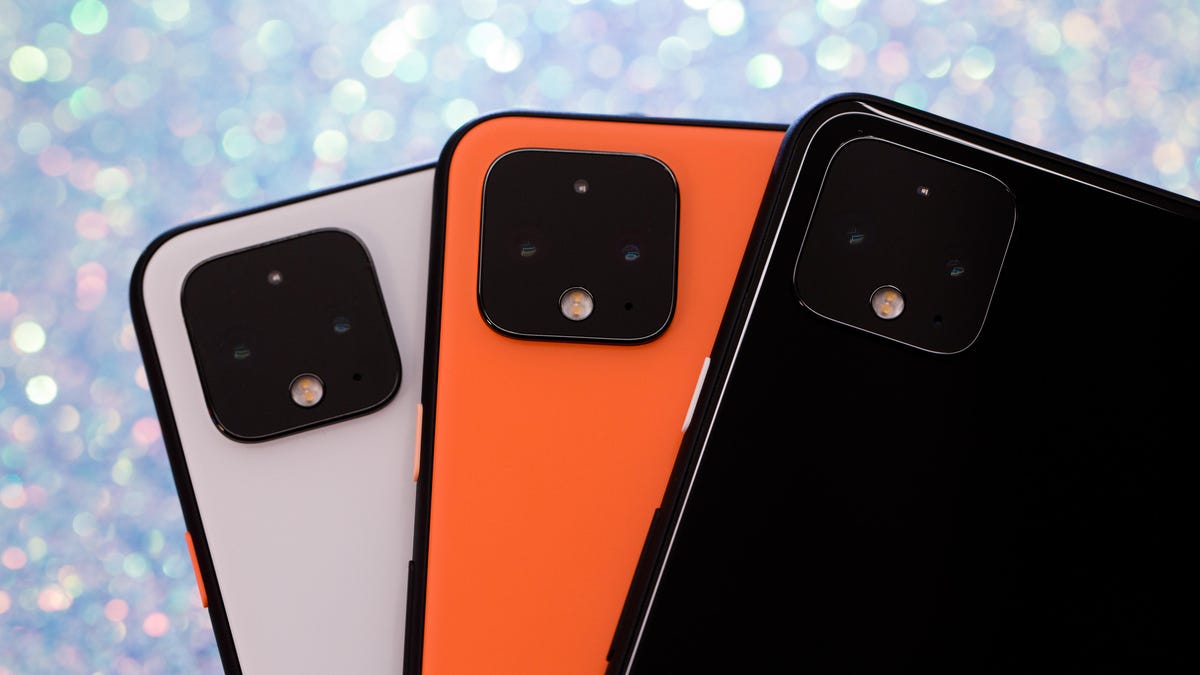Pixel 4, Pixel Buds, Nest Mini: Google wants its software in every part of your life
The search giant is betting big on hardware because it wants you to use its services all day long.

Google is talking up "ambient computing" at its hardware event.
Google on Tuesday unveiled a spate of highly anticipated new devices, including its flagship Pixel 4 phone, Pixel Buds to compete with Apple's Airpods, and a new version of the Google Home Mini speaker, renamed the Nest Mini . But if you really want to understand Google's goals when it comes to consumer hardware, one of the company's less-celebrated products, a lowly Wi-Fi router, provides an apt metaphor.
The search giant unveiled an updated version of its mesh Wi-Fi system, which uses multiple devices to spread the connection more evenly around the house. Each device also serves as an access point for the Google Assistant, the company's voice software akin to Amazon's Alexa or Apple's Siri . The router could represent Google's broader ambitions: As people aim to blanket every molecule of air in their homes with a strong internet signal, the company wants that physical space to be dominated by Google's products and services.
The new line of gadgets is meant to inject the company's software into every element of people's lives. The Pixel 4 travels in your pocket or purse everywhere you go. You can mount the Nest Mini on your walls at home. And a new touchscreen laptop called the Pixelbook Go sits on your desk in the office.
"Throughout your home technology works as a single system," Rick Osterloh, Google's hardware chief, said on stage. "Instead of a bunch of devices doing their own thing."
Google's updated Nest Mini
Google's stepped-up hardware efforts come as rival tech giants make a big push in consumer gadgets, too. Last month, Amazon unveiled more than a dozen new Alexa products, including high-end speakers, glasses and a ring (the kind you put on your finger, not to be confused with the web-connected doorbell company also owned by Amazon). Even Facebook has ramped up its product offerings, introducing last month a revamped version of its Portal video chat device, as well as a less expensive Portal Mini .
At the event, Osterloh pushed the idea of "ambient computing" -- an always-on, always-connected vision of everyday life, where you're not only interacting with software when you're on your phone or laptop, but while you're lounging around the house or driving in your car. That philosophy has broad implications, especially as Google's parent company Alphabet toils away at moonshot projects including smart cities and autonomous vehicles.
"We're getting a first-generation look at the fusion of those ideas," said Frank Gillett, an analyst at the market research firm Forrester. "They are trying to build a coherent system."
Beyond phones and smart speakers
The ambient computing strategy makes sense as Google tries to get customers to buy more of its devices, but it also behooves the company's larger business. The search giant generates more than $100 billion a year in revenue through targeted advertising, a business buttressed by personal data the company collects on people using its services. Google, for its part, has been trying to tamp down privacy concerns related to its ad operations. In May, Google CEO Sundar Pichai said the company would strive to do more with less data.
Still, Google's approach seems to be more measured than Amazon's, at least in terms of volume. Google unveiled five new devices on Tuesday. Amazon's approach has been to throw in everything but the kitchen sink. Last month, Amazon unveiled 15 new Alexa products, including high-end speakers, glasses and a ring. (A common joke among Amazon observers is that it'll one day make an Alexa kitchen sink.)
Google's consumer device line has come a long way. The company first rejiggered its hardware division in 2016, when it tapped Rick Osterloh, a former Motorola executive, to head up one dedicated device unit. That year, Google unveiled the original Pixel phone, its first branded smartphone.
Google's Nest WiFi mesh routers
Before the Pixel, Google had worked with handset makers including HTC and LG to manufacture a line of Nexus phones that ran a "stock" version of Android that was free of bloatware, a derisive term for software that carriers and device makers force onto the phones. To spur the operation, Google two years ago shelled out $1 billion in a deal with HTC to hire thousands of its engineers to work on Pixel and other Google hardware devices.
Now, Google is hoping to set its Pixel 4 and other devices apart in a hypercompetitive market by relying on the company's hardcore engineering chops. The new phone has motion and gesture sensing technology that lets people control the device by swiping their hands in the air. Google had been developing the tech, called Project Soli, since 2015. Another tool for the Pixel 4 is a feature that automatically calls 911 for you if the phone detects you've been in a bad car crash.
With the new Nest Mini, Google has added a machine learning chip that trains itself based on the most common commands people ask it. For those queries, it'll do all the computing on the device locally, instead of sending the request to the cloud, so you'll get responses faster.
While Tuesday's event was focused on consumer hardware, the strategy could one day also funnel into Google parent company Alphabet's grander ambitions. The conglomerate is working on driverless cars through its Waymo subsidiary. Sidewalk Labs, another Google sister company, aims to develop a smart city neighborhood in Toronto, where buildings would have flexible, movable wall panels. Automatic awnings would protect people from downpours and sensors would measure how public facilities are being used.
It's "ambient computing" at a whole other level. A new Pixel phone or a Nest Mini that you mount on your wall could just be the beginning.

